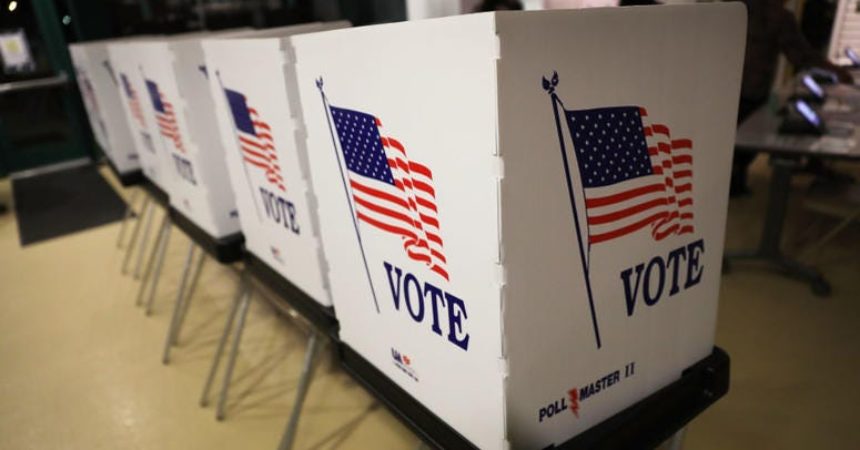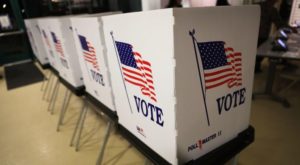
Ballot initiatives: alive, dead and in between
By Jim Saunders
News Service of Florida
Raising the minimum wage will be on the November ballot. Allowing recreational marijuana won’t.
With a critical petition-signature deadline last Saturday, those and other high-profile ballot initiatives have met different fates. Two initiatives are on the ballot, two others could be headed that way, one has been short-circuited and others are looking toward 2022.
To reach this November’s ballot, backers of proposed constitutional amendments were required to submit 766,200 valid petition signatures by a Saturday deadline and need Florida Supreme Court approval of the proposed ballot wording.
Here is a scorecard of the high-profile proposals:

Only two initiatives are sure to be on the ballot for state voters to decide in
November, while others await their fate.
Photo special to the Outlook
ON THE BALLOT:
— Voters will decide whether to gradually raise Florida’s minimum wage to $15 an hour, with it proposed to go to $10 an hour on Sept. 30, 2021 and increase by $1 each year until it hits $15 an hour on Sept. 30, 2026. Prominent Orlando attorney John Morgan has spearheaded the initiative, which has met the signature requirement and received Supreme Court approval. It will appear on the ballot as Amendment 2.
— Also cleared for the ballot is a measure, sponsored by the political committee Florida Citizen Voters, that would change wording in the state Constitution about the citizenship of voters. The Constitution now says, “Every citizen of the United States who is at least eighteen years of age and who is a permanent resident of the state, if registered as provided by law, shall be an elector of the county where registered.” The proposal would change that wording to: “Only a citizen of the United States who is at least eighteen years of age and who is a permanent resident of the state, if registered as provided by law, shall be an elector of the county where registered.” The proposal will appear on the ballot as Amendment 1.
WAITING GAME:
— The Supreme Court is weighing a proposed constitutional amendment that would overhaul Florida’s primary-election system. The initiative, sponsored by the political committee All Voters Vote, would allow registered voters to cast ballots in primary elections regardless of party affiliation. The two candidates getting the most votes in each primary would advance to the general election. The committee submitted enough petition signatures, and the Supreme Court heard arguments about the ballot wording in December.
— An initiative that would make it harder to pass constitutional amendments in the future met the petition-signature requirement this week. That initiative, led by the Keep Our Constitution Clean political committee, would require future constitutional amendments to be approved by voters twice — instead of once — to take effect. The Supreme Court is expected to consider the proposed ballot wording without holding oral arguments.
SHORT-CIRCUITED:
— The Supreme Court on Jan. 9 rejected a proposal that would have would have overhauled and deregulated the state’s electric-utility industry, saying part of the proposal’s wording would mislead voters. The proposal, sponsored by the political committee Citizens for Energy Choices, called for creating a “competitive” electricity market that would have made dramatic changes in the heavily regulated industry. It drew opposition from state leaders, business groups and Florida utilities.
MAYBE NEXT TIME:
— Two committees have pursued initiatives that would allow Floridians to use recreational marijuana, but they fell short of submitting enough petition signatures. One of the committees, Make It Legal Florida, has continued submitting signatures in hopes of reaching the 2022 ballot. The Supreme Court, meanwhile, will hear arguments Tuesday on the wording of the other proposal, sponsored by the Sensible Florida political committee.
— The Supreme Court also heard arguments last Tuesday on a proposed amendment aimed at blocking possession of assault-style weapons in Florida. As of last Friday morning, the state Division of Elections had tallied 146,162 valid petition signatures for the measure, led by the political committee Ban Assault Weapons NOW. Getting Supreme Court approval of the ballot wording could help if the initiative drive continues for 2022.
— Backers of a proposed amendment that would expand Medicaid eligibility have said they are looking to get on the 2022 ballot after submitting about 90,000 signatures in an initial attempt to go before voters this year. The proposal, sponsored by the political committee Florida Decides Healthcare, would offer Medicaid coverage to low-income adults who currently are not eligible. Florida lawmakers have repeatedly rejected such an expansion, which is optional for states as part of the federal Affordable Care Act.







